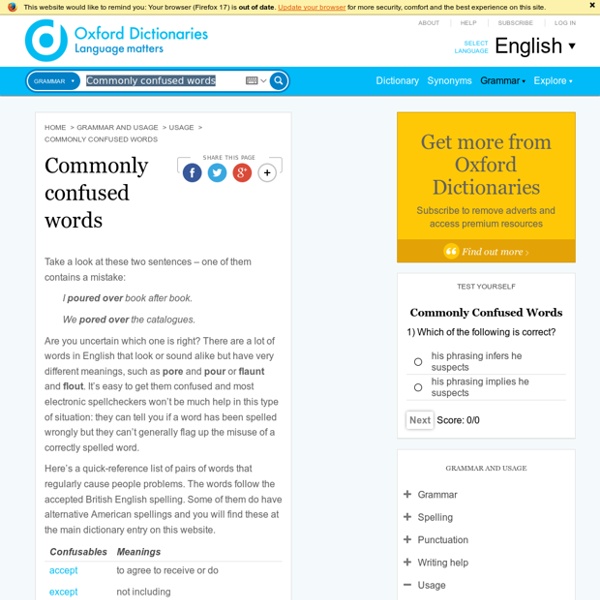Commonly confused words
Take a look at these two sentences – one of them contains a mistake: I poured over book after book. We pored over the catalogues. Are you uncertain which one is right? There are a lot of words in English that look or sound alike but have very different meanings, such as pore and pour or flaunt and flout. It’s easy to get them confused and most electronic spellcheckers won’t be much help in this type of situation: they can tell you if a word has been spelled wrongly but they can’t generally flag up the misuse of a correctly spelled word. Here’s a quick-reference list of pairs of words that regularly cause people problems. Back to Usage. You may also be interested in: 'Loose' or 'lose'? 'Pour' or 'pore'? 'Bare' or 'bear'?
The Best Books of 2014
We asked some of our contributors for their favorite books they read this year. (Most listed new books, but a few picked older favorites or ones that will come out in the new year.) I was riveted by Martin Amis’s “The Zone of Interest,” with its daring projection into the mind and “heart” of a character (Paul Doll, the commandant of a Nazi concentration camp) who, like Nabokov’s Kinbote, is a tour de force of crazed self-delusion. I just wish the whole book was in Doll’s voice, with his eruptions of unintentional humor, swathes of bathetic self-pity, and moments of blasé horror: he may have, at one point, killed a small girl prisoner who reaches for his hand, but it’s typical of Amis’s artfully elliptical method that I can’t be sure; I kept wincingly rereading the passage, as if through my fingers, trying to figure out what happened but not wanting to.
Theory & Methods - Literary Criticism
Esthetics Objectives: The esthetics realm emphasizes the human relationship to beauty. Students study literature, music, art, drama and dance to understand and appreciate this relationship. By means of the core courses in this realm, the student is to ... develop an esthetic awareness of the human person and her environment use her creative expression for her own pleasure or for sharing confront the expression of the human person's creative nature and to develop a respect for it improve critical judgment and artistic taste Objectives for the English Department: The English Department offers three majors—English, English Middle/Secondary Education, and English Professional Writing—and a number of minors relating to these fields. Course Description: The course focuses on critical theory as it applies to literature and culture. Course Objectives*: *See “Assignments and Grading” below for correlation between objectives and assignments. Assignments and Grading: Required Texts: Tyson, Lois.
Related:
Related:



